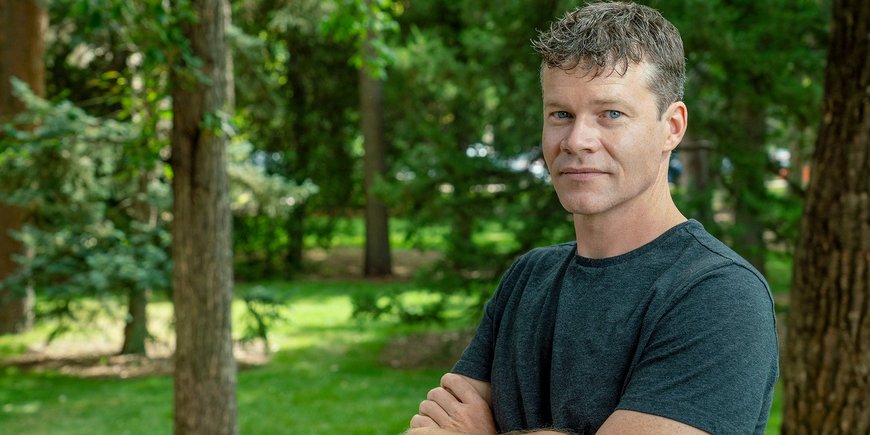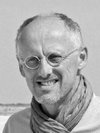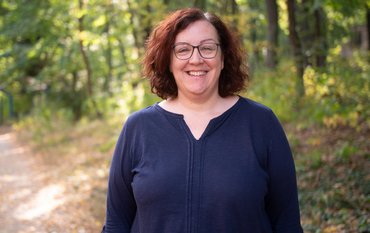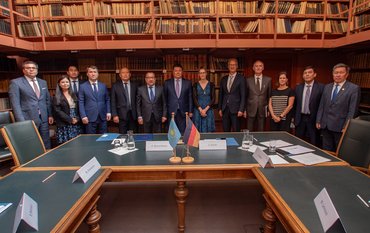Professor Sean Gallen from the Colorado State University in Fort Collins, USA, has been awarded a Senior Humboldt Research Fellowship to join Prof. Jean Braun an his section 4.7 Earth Surface Process Modelling for 6 months starting on August, 15 2024. With the Humboldt Research Fellowships, the Alexander von Humboldt Foundation supports postdoctoral researchers with above-average qualifications and experienced academics from all over the world to spend 6-24 months conducting research in Germany.
Sean Gallen is an Earth Scientist interested in landscape evolution, tectonics, critical zone science, and natural hazards. His research is interdisciplinary and involves a combination of fieldwork, geochronology, numerical modelling, geographic information systems (GIS), and laboratory and data analysis. Gallen’s projects focus on topics from the development of topography above subduction zones to the influence of earthquakes on erosion and sediment transport to the co-evolution of landscapes and aquatic species.
Jean Gallen received his Master in Geology from Western Washington University, Bellingham (2008), and his Ph.D. in Marine, Earth, and Atmospheric Sciences from North Carolina State University, Raleigh (2013). In 2013, he was awarded the Turner Postdoctoral Fellowship from the University of Michigan, and in 2021, he has received the NSF CAREER Award of the National Science Foundation.
At the GFZ, Sean Gallen is addressing how climate affects the long‐term evolution of natural landscapes by using models developed in Section 4.7 to interpret data collected in the Colorado Front Ranges. The data include cosmogenic-nuclide derived estimates of erosion rate as well as high resolution topographic and climatic data.











![[Translate to English:] [Translate to English:] Abror Gafurov von dem Schriftzug "Welcome to Azerbaijan" und den UN und COP Logos](/fileadmin/_processed_/2/5/csm_2024_11_Baku_COP29_Abror_Gafurov_1042faec82.jpeg)


![[Translate to English:] Martin Herold standing in front of the library on the Telegrafenberg](/fileadmin/_processed_/c/d/csm_Martin_Herold_d385ee4dd9.jpeg)
![[Translate to English:] Many people are listening to a presentation in the GFZ lecture hall.](/fileadmin/_processed_/c/a/csm_1_Bild1_hell_b9c0e9f5ed.jpeg)






![[Translate to English:] Both scientists sitting on stools in front of a wall of books in the Telegrafenberg library](/fileadmin/_processed_/6/6/csm_Buiter_Castell_DORA_4_e87cb1ea18.jpeg)
![[Translate to English:] Gruppenbild mit 4 Personen](/fileadmin/_processed_/8/d/csm_20241017_GFZ-Emmerman-Medal-005_web_reinhardtundsommer_21a414fa4a.jpeg)





![[Translate to English:] Ice landscape with five red tents](/fileadmin/_processed_/8/9/csm_Zeltlager_auf_dem_Eis_Urheberin_Jenine_McCutcheon_5ced2d523b.jpeg)



